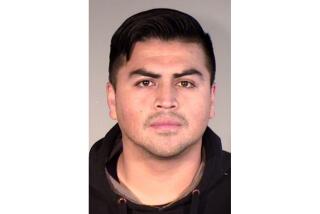A ‘window’ for victims of abuse
WITHOUT question, the bravest souls involved in Los Angeles’ $660-million clergy abuse settlement are the victims who came forward to sue the archdiocese. By now they have traversed more levels of Dante’s inferno than anyone should have to experience.
But another heroic group has gone largely unrecognized -- the Legislature. It is only because that body passed historic childhood sexual abuse legislation in 2002 that these lawsuits and settlement happened. That law created a one-year “window” into the legal system for claims that had been shut down by overly short statutes of limitations -- as little as three years for some victims.
Indeed, in 2003, any California childhood sexual abuse victim could go to the courthouse and find that the statute-of-limitations lock had been taken off the courtroom door. And in they went -- about 850 Catholic clergy abuse victims and 150 others who sued churches, the Boy Scouts and other institutions for employing known molesters. Even as the U.S. Supreme Court struck down California’s window for criminal prosecutions, the window has been held open for civil lawsuits.
In the Boston Archdiocese scandal, victims faced “charitable immunity” laws that limited the amount of financial damages they could recover. Expired statutes of limitations also weakened their cases, and as a result, they received much less compensation per victim. With the statute of limitations set aside, California plaintiffs came to the justice system with much more powerful claims.
The window law is the sole reason California dioceses and members of the church hierarchy, such as L.A.’s Cardinal Roger M. Mahony, were forced to face the prospect of truth-revealing trials and substantial damages. Once other California diocese settlements came in -- and showed that plaintiffs had increased legal bargaining power -- victims were able to demand release of church personnel files. The church has resisted releasing such files, but lawsuits filed under the window law revealed the identities of many perpetrators and their institutional enablers.
California’s window legislation has a beneficial ripple effect across the country as well. Last week, the Wisconsin Supreme Court, in John Doe vs. Archdiocese of Milwaukee, for the first time permitted a clergy abuse case to go forward, and it is highly likely that facts from a California case involving Father Siegfried Widera made a big difference. Widera had been transferred back and forth between Wisconsin and Southern California, and his California victims had laid out their horrific stories in court. The church hierarchy knew Widera was a convicted serial child molester and hid that fact from parishioners in both states.
California may be starting a trend toward unlocking courthouse doors for childhood sexual abuse victims. Just last week, Delaware became the first state to follow suit with a window law of its own. Its Child Victims Act creates a two-year window to file suits and abolishes the civil statutes of limitations on sexual abuse cases going forward. The New York Assembly has passed similar legislation, hearings have been held by the District of Columbia City Council, and the introduction of window bills is likely in a number of states this fall.
The beneficiaries of such bills extend well beyond clergy abuse victims, and the statistics are sobering. Multiple studies have concluded that at least 20% of boys and 25% of girls have been sexually abused -- the majority by family or family acquaintances. There is a crying need to give these victims a shot at justice. One incest victim told me that she didn’t come to terms with her abuse until her 40s, and when she did, she told her father she was going to sue him. His response? Don’t be silly -- I have the benefit of the statute of limitations. This is a woman who deserves the California-type window, and there are millions like her across the country.
It is shameful that most states have had such short statutes of limitations on childhood sexual abuse. Even though states, including California, have been lengthening those limits, that doesn’t help past victims whose claims have expired. These victims have been foreclosed from justice while predators enjoy a system that protects their interests first and foremost. California has shown the rest of the country a more heroic and noble path to follow.
More to Read
Sign up for Essential California
The most important California stories and recommendations in your inbox every morning.
You may occasionally receive promotional content from the Los Angeles Times.










